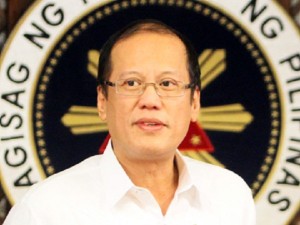Human Rights Watch urges Aquino to stop killings
The New York-based Human Rights Watch (HRW) on Wednesday took President Benigno Aquino to task for failing to stop the killing of environmental advocates while promoting mining in the country.
The HRW said it had documented three cases of critics of mining and energy projects murdered allegedly by paramilitary forces since October 2011. It said the activists had been vocal against projects that threatened to ruin the environment and displace tribal communities.
“President Aquino has enacted decrees to encourage mining investments in the Philippines but has done little to stop attacks on environmental advocates,” Elaine Pearson, HRW deputy Asia director, said in a statement. “He should recognize that respecting human rights is crucial for economic development.”
The group observed that Executive Order No. 79, issued by Mr. Aquino on July 2 to institute reforms in the mining sector, was silent on human rights abuses arising from mining investments and the deployment of paramilitary groups to the mines.
“While mining and other environmentally sensitive projects promise economic benefits for Filipinos, they should not come at the expense of basic rights, particularly the lives of environmental advocates,” Pearson said.
The government, she added, “should ensure that those responsible for these attacks are brought to justice.”
The unresolved cases
Margarito J. Cabal, 47, an organizer of a group opposing a hydroelectric dam in Bukidnon province, was gunned down on May 9. He had told relatives he was under military surveillance, and had been called to meet the military about his activities. Police have neither investigated the murder nor made arrests, his relatives said.
Jimmy Liguyon, a village chief at Dao in San Fernando, also in Bukidnon, was allegedly shot dead by a leader of a paramilitary group on March 5. He had refused to sign an agreement needed to secure a mining investment, and had been under military surveillance. The suspect remains at large.
Fr. Fausto Tentorio, a longtime advocate of tribal rights and a critic of mining activities, was shot dead on Oct. 17 in Arakan, North Cotabato province. The local paramilitary group Bagani (tribal warriors) is being blamed for the killing. No one has been arrested, but the National Bureau of Investigation has recommended charges against four suspects.
Tentorio’s colleagues allege that some suspects with military ties have been deliberately left out of the case, and two witnesses and their families have gone into hiding while others have been threatened, according to the HRW.
Investigations urged
The group appealed to the government to redouble its investigations of attacks on advocates, particularly when evidence points to the involvement of the military or paramilitary forces; to arrest and prosecute the suspects, and to protect witnesses at risk.
The HRW also lamented that mining investments in areas with large indigenous populations or are controlled by tribal groups often result in conflicts among the people.
In tribal communities, some back investors with the support of the military to acquire the necessary permits, while tribal factions opposed to the investments sometimes get support from the communist New People’s Army or other armed groups.
“This has resulted in proxy conflicts pitting tribal groups against each other, resulting in numerous rights abuses,” the HRW said.
There are environmental and antimining advocates who fear for their lives, the HRW said.
Sr. Stella Matutina, a Benedictine nun who leads a grassroots campaign to oppose destructive mining in Davao Oriental province, said she feared for her life because she had been tagged by the military a communist. She and her fellow advocates said the tag stemmed from her opposition to mining.
“And even in cases where suspects have been identified and face an arrest warrant, they may go unpunished. For instance, former Palawan Gov. Joel Reyes remains at large despite an arrest warrant for his role in the killing of journalist and environmentalist Gerry Ortega on Jan. 24, 2011,” the HRW said.
Disband militia groups
The United Nations special envoys on human rights defenders and on extrajudicial executions issued a joint statement on July 9 assailing the Aquino administration for the attacks on human rights and environmental defenders, saying these abuses “have increased significantly over the past few months.”
The HRW reiterated its call to Mr. Aquino to disband all paramilitary forces because of their long history of human rights violations, and revoke a 2011 directive that permits these forces to provide security for mining companies.
“Aquino should disband paramilitary groups that are being used to divide tribal communities and instill fear among the residents,” Pearson said. “The government crucially needs to hold accountable the military officers who are behind these abusive forces.”















